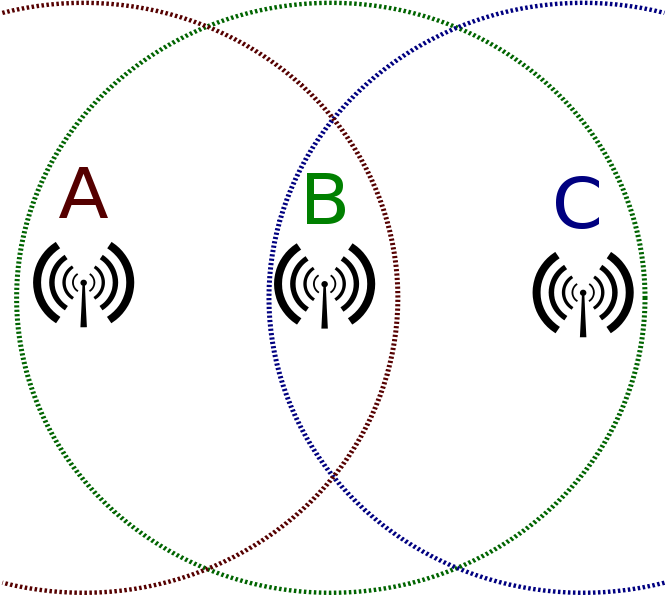Mesh/Terms
Glossary of Terms
Hidden Node Problem

The Hidden Node Problem is a communication issue in wireless communications. Wireless communications are inherently broadcast. That is, they are generally unable to direct their communication towards one source and instead, any node within listening range hears their signal. Additionally, if multiple nodes are broadcasting on the same frequency, concurrent signals will interfere with eachother.
Wireless networking protocols must accomodate this fact. If all of the nodes are within range of eachother, the simplest method is for each node to listen for a signal and then only send its own signal if it doesn't hear anything being sent. However, if not all of the nodes are within signal distance of eachother, there exists an issue wherein nodes can talk over eachtother thereby interfering with communications.
In our example, node A and node C would like to communicate with node B. Node A and node C are within signal range of node B, but not within range of eachother. Both of the nodes check to see if they are receiving any signal, and because they aren't within range of eachother, they proceed to send. By the time that the signals reach node B, they are interfering with eachother.
One solution to the hidden node problem is for each node to check with its intended recipient to see whether or not it is clear to send. Only after the sender recieves a confirmation to send does it begin transmission. This adds latency as for each packet sent, the sender must first check to see if the air is clear.
Fresnel Zone
The Fresnel Zone is a football shaped signal path. Understanding it and its implications more thoroughly would likely lead to better radio transmissions between nodes.